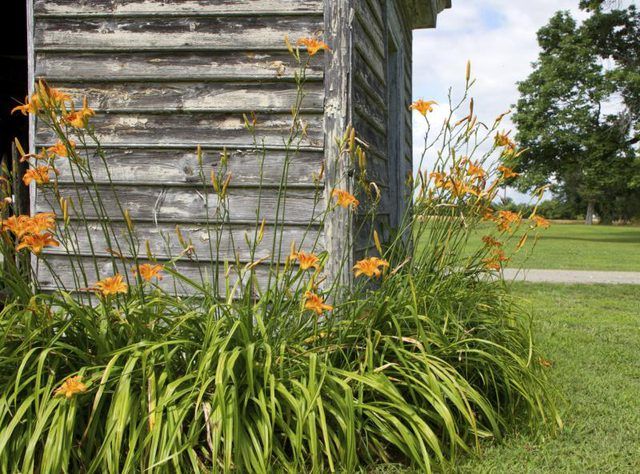Bulbs
Flower Basics
Flower Beds & Specialty Gardens
Flower Garden
Garden Furniture
Garden Gnomes
Garden Seeds
Garden Sheds
Garden Statues
Garden Tools & Supplies
Gardening Basics
Green & Organic
Groundcovers & Vines
Growing Annuals
Growing Basil
Growing Beans
Growing Berries
Growing Blueberries
Growing Cactus
Growing Corn
Growing Cotton
Growing Edibles
Growing Flowers
Growing Garlic
Growing Grapes
Growing Grass
Growing Herbs
Growing Jasmine
Growing Mint
Growing Mushrooms
Orchids
Growing Peanuts
Growing Perennials
Growing Plants
Growing Rosemary
Growing Roses
Growing Strawberries
Growing Sunflowers
Growing Thyme
Growing Tomatoes
Growing Tulips
Growing Vegetables
Herb Basics
Herb Garden
Indoor Growing
Landscaping Basics
Landscaping Patios
Landscaping Plants
Landscaping Shrubs
Landscaping Trees
Landscaping Walks & Pathways
Lawn Basics
Lawn Maintenance
Lawn Mowers
Lawn Ornaments
Lawn Planting
Lawn Tools
Outdoor Growing
Overall Landscape Planning
Pests, Weeds & Problems
Plant Basics
Rock Garden
Rose Garden
Shrubs
Soil
Specialty Gardens
Trees
Vegetable Garden
Yard Maintenance
Are Daylilies Deer Resistant?
Are Daylilies Deer Resistant?. As most gardeners know, deer eat almost anything. Very few trees or other plants can be called deer-proof or deer-resistant. Daylilies (*Hemerocallis* spp.) are somewhat appealing to deer, which have been known to munch on daylily blooms and even eat the leaf shoots all the way to the ground. Luckily, established...

As most gardeners know, deer eat almost anything. Very few trees or other plants can be called deer-proof or deer-resistant. Daylilies (Hemerocallis spp.) are somewhat appealing to deer, which have been known to munch on daylily blooms and even eat the leaf shoots all the way to the ground. Luckily, established daylilies have extensive root systems that help them survive even the most severe damage from deer. So although you might not be able to enjoy blooms on your deer-eaten daylilies this year, you at least know your plants probably will live.
The Deer-Resistant 'Stella de Oro'
There is hope for daylily lovers in areas with deer. The 'Stella de Oro' daylily (Hemerocallis 'Stella de Oro') has been bred to be deer-resistant. The cultivar is perennial in U.S. Department of Agriculture plant hardiness zones 2 through 9 and is a repeat-bloomer, providing golden-yellow, trumpet-shaped flowers from early summer to mid-fall. Almost no plant is completely deer-resistant, however. Deer may nibble on this daylily out of desperation, but many sources label 'Stella de Oro' as a deer-resistant daylily.
Planting Techniques
One way to protect your prized daylilies from becoming snacks for deer -- and allow you to enjoy their blooms all summer -- is to surround the daylilies with plants that are deer-resistant. The time you spend planning your deer-resistant flower border will be well worth the effort when your daylilies are left alone by deer. Certain shrubs, trees, herbaceous perennial plants and annual plants are not usually damaged by deer. Those annual plants include snapdragons (Antirrhinum majus) and zinnias (Zinnia spp.), according to the publication Deer-Resistant Plants by North Carolina Cooperative Extension.
Deer Repellents
Another way to attempt to keep your daylilies from becoming the deer's next meal is to use repellents. For example, bar soap and hair are both deer repellents.
Soap: The scent of soap seems to keep deer away. Soap that has an especially strong, soapy aroma works best. Stab bars of soap with a sharp stick, and set the bars around your garden, or hang them in mesh bags around the garden.
Hair and fur: When you clean your hairbrush, save the hair you remove from it. Likewise, save the fur from your dog's or cat's brush. Put the hair and/or fur in mesh bags and hang the bags around your garden. The scent of the human hair and/or animal fur will scare off deer.
Many commercial deer repellents are available, and they contain items ranging from rotten egg solids to fungicides. If you choose to use a commercial repellent, then read and follow all of its directions carefully. Most commercial repellents need to be sprayed directly on plants to deter deer from eating the vegetation. Some repellents need to be reapplied after a rain, and all need to be applied on new growth as it appears.
Deer Deterrents
The best way to keep your daylilies safe from being eaten by deer is to keep deer away from the plants completely. Two strategies to try are fencing and scare tactics.
Fencing: Whether it's a wooden privacy fence, mesh deer netting or an electric fence, a border around your garden can protect it. Some deer can jump up to 8 feet high. So your fence needs to be at least that tall. Even though deer can jump 8 feet upward, they cannot jump over a wide object that is 8 feet tall. Therefore, your fence could be 6 feet tall if its top portion above 6 feet slants outward at a 45-degree angle.
Scare tactics: If you're not ready to dedicate yourself to fencing, then try some other ways to keep deer away from your daylily garden. For example, the mere presence of dogs protects plants. Also, a radio playing loudly in the garden will keep deer away, but it may disturb neighbors.
